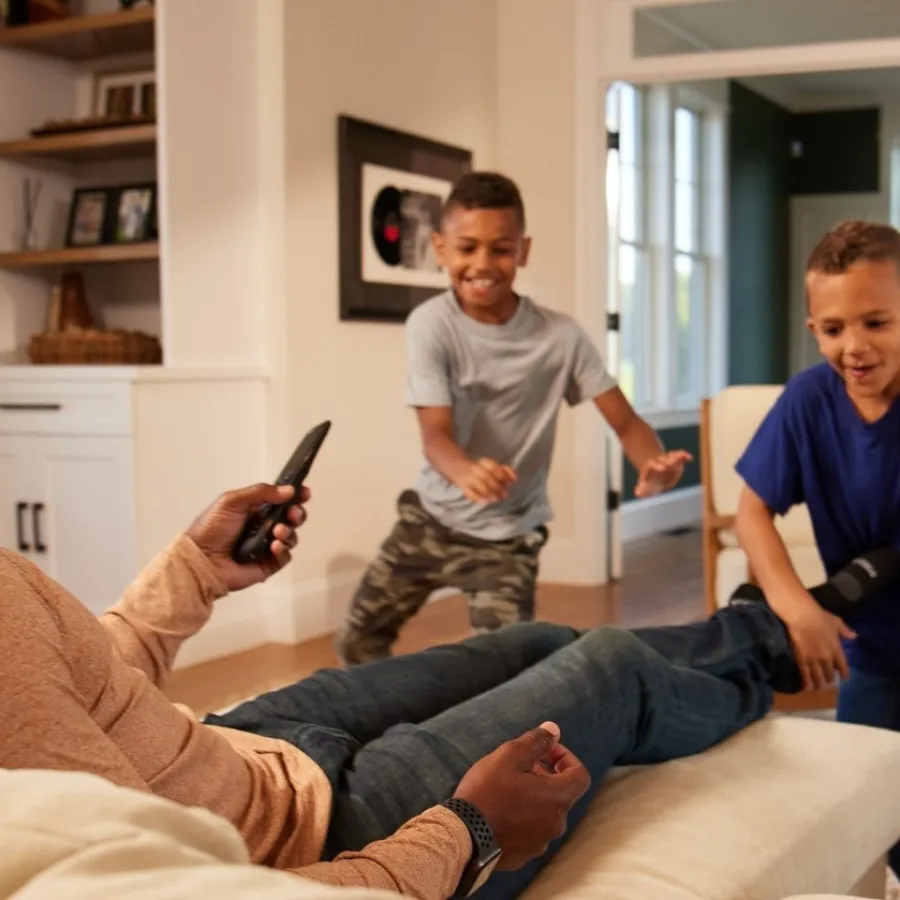
Teaching and involving kids in housecleaning is not only a big help to you, it’s a vital way of assisting them with establishing positive life habits and understanding how to ensure that any future investments they might make in homes and possessions will deliver positive returns. Here are 10 tips for starting and keeping kids involved with housecleaning:
Quit complaining! Kids are like sponges. If you often avoid or loudly complain about housework, they are bound to soak up the same attitude.
Let them see you clean. While it may be inconvenient to have kids underfoot while taking on tough cleaning tasks, make sure that, at least once in a while, they get to see you cleaning with both energy and enthusiasm. When you do let them observe, however, be sure to use child-friendly solutions as their not-yet-fully-developed respiratory systems are particularly sensitive to noxious fumes from bleach, ammonia, and other strong cleaning solutions.
Start ‘em young. Toddlers learn by imitating adults and older children. Gift them with cleaning toys — dusters, vacuums, rags, kid-sized rubber gloves, spray bottles — at a young age and encourage them to ‘clean’ along with you. Promise that, someday they’ll be allowed to use the grown-up versions.
Purge and organize. A key to fast, easy tidying is to have ample storage space and clearly designated places for all family possessions. Help younger children to learn where things belong by labeling storage spaces with pictures and words.
Preach and teach. Children are naturally curious. As opportunities present, explain what you are doing and why. Teach them also about the tools you are using and how they work. For example, “This cleaning solution contains many different kinds of molecules that attach to different kinds of dirts to lift them away,” or “This microfiber rag uses an electrostatic force (called van der Waals force) to pick up dust.” With older children you can take this a step further, encouraging them to do their own research online or even base a school project on the ‘science’ behind a certain cleaning task.
Give them ‘reach’ tasks. For the most part, assign age-appropriate cleaning tasks to kids — things you know they’ll be able to accomplish easily and well. But, every so often, ask if they’d like to graduate to something a bit more challenging. They’ll appreciate your confidence in them and may work harder to prove they’re capable. Be sure to thank them for stepping up, and…
Resist ALL urges to fix their work. Perhaps there’s still dust in the corner. Or the laundry isn’t folded just so. Let it go! Remind yourself that the value of establishing lifelong housecleaning habits far outweighs a fleeting moment of cleaning perfection. And, if you must fix their work, at least wait until they are no longer around to see.
Chunk it up. In much the same way you might advise a child or teen to break up a school project into manageable chunks to be completed over a period of time (vs. in panic mode the night before it’s due), help them to strategize how to chunk up larger, more overwhelming cleaning tasks. For example, when faced with cleaning a super messy teen bedroom, they might chunk it up as follows: pick up and move dirty clothes to laundry, take a phone break, move dirty dishes to kitchen/dishwasher, break, pick up and discard trash, break, make bed, break, fold and put away clean clothes.
Build in flexibility. This is especially important for cajoling preteens and teens into completing household chores. Instead of ‘Do this now!’ try ‘Make sure this is done sometime before we sit down to dinner.’
Express yourself. Finally, when the housework is done, be vocal about how much you appreciate relaxing and spending time with your family in a clean, peaceful home and the effort everyone has put in to making it happen.

